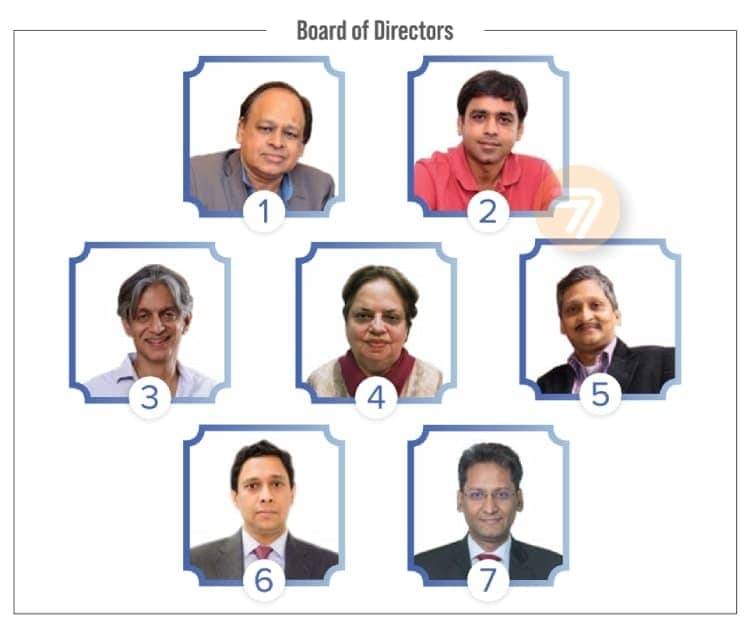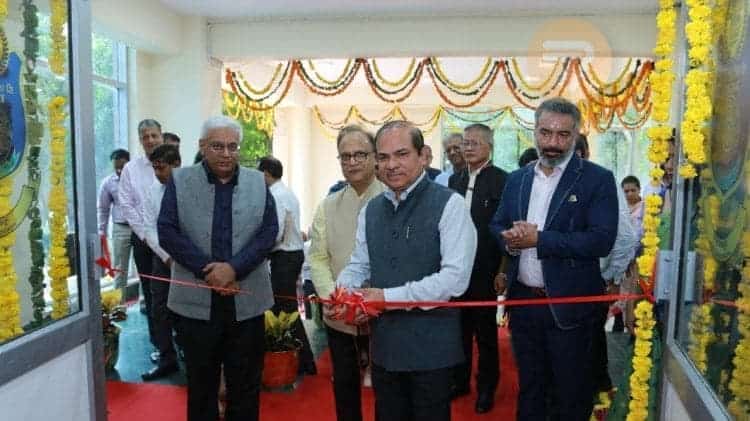Nazara Scores vs DGGI’s Retrospective Claims
17 Oct 2024
Kolkata HC Grants ₹846 Crore Interim Relief to Subsidiary Openplay
The High Court of Kolkata has issued an order to block further enforcement action by GST authorities against Openplay Technologies. Nazara Technologies’ latest Annual Report (FY24) shows that the holding company currently owns a 94.91% stake in Openplay.
The ruling will provide temporary relief to the tech giant until the solving of the case. The order ensures that the Directorate General of GST Intelligence (DGGI) will not attempt to collect ₹845.72 crore ($101.5 million) for the time being.
As we reported in the summer, two subsidiaries of Nazara Technologies received Show-Cause Notices (SCNs) from DGGI West Bengal. The two notices collectively alleged the evasion of GST obligations for ₹1,120 crore ($134.4 million) between FY18 and FY23.
Concerning the ₹845.72 crore SCN sent to Openplay, the Kolkata HC directed that “no effect shall be given to any order passed by the tax authority (Director General of GST Intelligence, Kolkata) in relation to the show cause notice.” The issuing of the SCN is in accordance with Section 74(1) of the Central GST Act, 2017, in conjunction with the West Bengal GST Act, 2017.
The demand against Nazara’s other involved subsidiary, Halaplay Technologies, is for ₹274.21 ($32.9 million). The tax claims are based on GST calculation over “the sums pooled by players as opposed to gross gaming revenues.”
For comparison, Nazara acquired its majority share in Hyderabad-based skill gaming operator Openplay in 2021 for ₹186.4 crore ($22.37 million). In 2020, Nazara paid ₹14.6 crore ($1.75 million) to raise its stake in online fantasy gaming platform Halaplay to 64.70%.
The two subsidiaries jointly provide less than 2% of the tech giant’s turnovers and less than 1% of its earnings.
The Retrospective GST Dispute
Before 1 October 2023, Indian skill-gaming companies paid 18% GST over their trade margins or GGR (Gross Gaming Revenue). The Central Board Of Indirect Taxes & Customs (CBIC) and its enforcement arm, the DGGI, maintained that operators of online games with stakes should pay 28% GST on the full value of bets.
Based on recommendations from the 50th and 51st GST Council Meetings, Central and State GST Acts were amended to levy all money games with 28% GST over the total deposit value. This way, Indian indirect tax laws placed online money games, casinos, horse races, and lotteries in the same bracket.
In September 2023, following the new GST legislation, the Supreme Court stayed the quashing of a DGGI Show-Cause Notice.
Before that, in May 2023, the High Court of Karnataka rejected the first large GST enforcement demand in India. The SCN was against Gameskraft Technologies Private Limited (GTPL). It alleged the evasion of an astounding ₹21,000+ crore ($2.52 billion).
According to the DGGI, Gameskraft had not paid GST on deposits totaling 77,000 crore ($9.24 billion) for the period between July 2017 and June 2022.
The ₹1.1 Lakh Crore SCNs and the Supreme Court
The development at the Apex Court untied the arms of the Directorate General of GST Enforcement. Over the following months, 71 SCNs demanded ₹1,12,332 crore ($13.48 billion) plus penalties and interest.
Practically all of India’s homegrown money gaming businesses received Show-Cause Notices. The list includes the likes of Dream11, Games24x7, Head Digital Works, and many more. Delta Corp, the country’s only listed operator of land-based chance games like Roulette and Blackjack, also attracted a few SCNs.
The industry appealed the issued notices, and a wave of litigations swept the High Courts in the States of India. In several moves, the Apex Court collected all similar cases against the DGGI and batched them together under Civil Special Leave Petition 19366 of 2023.
The resolution of the “mega” case involving such large amounts will, without doubt, profoundly impact India’s industry and business climate. The fact that a single ruling by the Supreme Court will solve all batched litigations will guarantee uniformity of judgment and streamline the resolution.
Nevertheless, the SC’s decision on the retroactive aspect of the GST levy cannot offer relief to the ongoing business. The Indian sector is facing some of the highest tax rates on money games in the world, and at the same time has to deal with offshore competitors that pay lower taxes in other jurisdictions.
According to DGGI’s own report for FY24, a number of “non-cooperative” entities “appear to intentionally avoid tax compliance.” The DGGI further points out that “these include various online casinos based out of tax-havens like Malta, Cypress, Curacao, BVI etc.”
SCNs Covering Multiple Years Might be Unsustainable in Court
The arguments presented by the army of counselors representing Indian online gaming businesses at the Supreme Court revolve around the legality of the retrospective aspect of the demands and the constitutional validity of the amendments to GST legislation.
However, according to an expert analysis, most of DGGI’s Show-Cause Notices cannot sustain court scrutiny. This is because they cover more than one GST assessment year.
This practice is not consistent with the provisions of GST laws, the experts claim. This is especially true considering the fact that different years often come with different tax rules.
Moreover, the DGGI has been sending SCNs for years with expired statutes of limitations. The department tries to avoid this by batching them together with more recent assessment years. The court practice also shows that such notices are not sustainable.
The industry’s confidence that the DGGI’s retrospective claims are doomed to fail is best illustrated by Delta Corp’s refusal to make provisions for the enormous GST demands.



